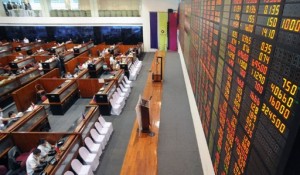Inflation will like get worse over the next two months, the Bangko Sentral ng Pilipinas warned on Friday, but noted that relief from the unrelenting price hikes since the start of this year might finally be in sight for suffering Filipino consumers by the fourth quarter.
Speaking at a media forum, BSP Governor Nestor Espenilla Jr. said that central bank economists expected the pace of consumer price increases to peak in the months of August or September ahead of the expected normalization to the 2-4 percent range by 2019.
“Based on our assessment, the August inflation number may be higher than the July number,” he said, adding that the consumer price index would likely be “close” to the previous month’s number.
“The peak will probably be either in August or September, before it starts coming down,” he said.
The country’s inflation rate hit 5.7 percent in July—the highest in at least five years—due to high international crude oil prices and local rice supply bottlenecks, all accentuated by the Duterte administration’s tax hikes this year.
Despite this expected peak, the central bank chief refused to rule out further monetary policy tightening meant to contain inflationary pressures, coming off a 50-basis point rate increase last week, which was also the BSP’s biggest rate hike in a decade.
“It will be too soon to categorically state that once we hit the [inflation] peak then that’s it,” he said during a forum at the National Press Club in Manila on Friday. “We have to gather more information. We are not reacting to the now. We are reacting to the future.”
Espenilla said central bank planners needed to understand better how the public’s inflation expectations—including those caused by a weaker currency—were translating into actual price increases. At the same time, the central bank also has to weigh external concerns like the ongoing currency crisis in Turkey, which is affecting sentiment toward all emerging market currencies, including the Philippine peso.
“So we have to explain this to the public, and at that point, we’ll have to decide whether this is really going to continue on, or we can already bide our time and wait for inflation to settle down back to target as we anticipate,” he said when asked about the possibility of further rate increases.
He assured though that any further rate hike, if warranted, would not impact the country’s economy substantially.
“They will not necessarily compromise our economic growth,” he said, pointing out that the second-quarter growth of 6 percent was still one of the strongest in the region, despite the disappointment expressed by local market watchers.


